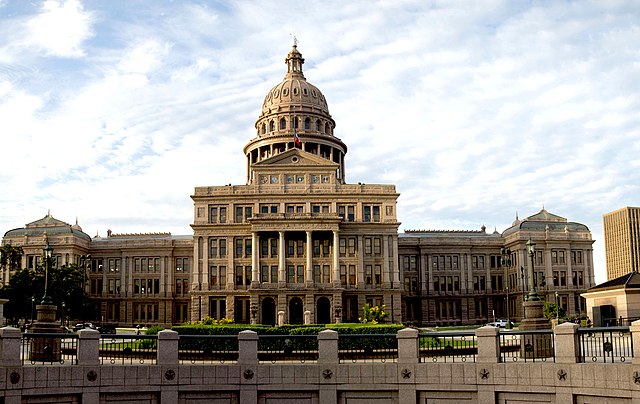
We have seen a tremendous amount of misinformation, disingenuousness, and unjustified hysteria this week in response to S.B. 8, Texas’s novel new heartbeat law, which bans abortions after a fetal heartbeat can be detected. The Supreme Court, by a narrow 5-4 margin, denied various Texas abortion provider plaintiffs’ emergency request for the Court to enjoin any enforcement of the Texas Heartbeat Act.
The Court was, of course, correct to rule as it did. As a basic legal norm, when a plaintiff seeks a stay or an injunction, the plaintiff must overcome a strong rebuttable presumption against such relief. The abortionist plaintiffs plainly failed to do so in the Texas litigation, due in part to the fact that, as the Court’s unsigned per curiam opinion noted, “it is unclear whether the named defendants in this lawsuit can or will seek to enforce the Texas law…in a manner that might permit [judicial] intervention.” To cut through the legalese a bit: The abortion providers sued the wrong people.
The various dissenting opinions all failed to explain how the justices might have been able to overcome this straightforward barrier to granting the injunction. Instead, as law professor Josh Blackman wrote: “At least three of the four dissenters deeply felt that this law was substantively unjust, so there must be a way to stop it.” But that is simply not how a court of law works in our constitutional order. Courts possess no sweeping power to “strike down” statutes. Instead, “the judicial Power” of which Article III of the Constitution speaks refers to a court’s limited ability to enjoin specific government officials from enforcing a law against named litigants in a “case” or “controversy” properly before it.
There are few aspects of our constitutional order more frequently misunderstood than this. To its credit, in what is perhaps a nod to Ralph Lerner’s “The Supreme Court as Republican Schoolmaster,” the per curiam opinion drives home the point: “[F]ederal courts enjoy the power to enjoin individuals tasked with enforcing laws, not the laws themselves.” Good for the Court.
Much of the confusion about this specific litigation (including from the abortionist plaintiffs themselves) stems from the fact that, to quote Chief Justice John Roberts’s otherwise lamentable dissent, “the statutory scheme” of the Texas Heartbeat Act is “not only unusual, but unprecedented.” To wit, S.B. 8, which purports to prohibit abortion after a fetal heartbeat is detected (usually around six weeks’ gestational period), expressly bars Texas government officials from enforcing the law themselves. Instead, S.B. 8 relies on private citizen watchdogs to sue those who perform, aid, or otherwise abet abortions after six weeks. Consistent with most other pro-life legislation, which views women seeking abortions as ancillary victims of abortionists’ predations rather than as legally or criminally culpable themselves, a woman seeking a post-fetal heartbeat abortion herself cannot be sued under S.B. 8. Under the law, private citizens’ successful lawsuits can net $10,000.
The arcane procedural structure of the Texas Heartbeat Act has thus far ensured its survival, amid judicial scrutiny, where other states’ similar fetal heartbeat laws have failed. The short- to medium-term result is that hundreds, possibly thousands, of innocent unborn Texans will be spared an untimely death. That is itself worth celebrating—indeed, it is itself worthy of two cheers for the novel law. Pro-lifers should be joyful about this substantive result.
But a full three cheers is inappropriate for at least two reasons.
First, as Blackman noted, “S.B. 8 expressly stipulates that citizens’ suits must comply with Roe v. Wade.” That is a rather curious inclusion on the part of the draftsmen, for the simple reason that a large swath of post-fetal heartbeat abortions still occur before fetal “viability” and are thus suspect under Roe and its infamous successor, Planned Parenthood v. Casey. Indeed, the Texas Heartbeat Act is in tension with those precedents—much as is the case with Mississippi’s own 15-week abortion ban, on which the Court has granted certiorari and will rule next year. It is unclear why the Texas law included this provision, and it is unclear at best how much the provision’s inclusion will hinder private citizens’ future suits against abortionists.
Second, and related, the Texas law makes no attempt to shift the constitutional playing field on the substantive abortion jurisprudence of Roe, Casey, and Whole Woman’s Health v. Hellerstedt. The inclusion of the Roe compliance provision gives away the game, in that respect, and the per curiam opinion says as much too: “[W]e stress that we do not purport to resolve definitively any…substantive claim in the applicants’ lawsuit. In particular, this order is not based on any conclusion about the constitutionality of Texas’s law, and in no way limits other procedurally proper challenges to the Texas law, including in Texas state courts.” So a definitive judgment about the fate of Roe and Casey will wait for another day—most likely when the Court hears Dobbs v. Jackson Women’s Health Organization, the Mississippi case.
By the time procedurally adequate litigation is launched under S.B. 8, many unborn Texan lives will have been spared. That is a beautiful thing, and pro-lifers around the nation should be pleased. But cable news-induced hysteria notwithstanding, the Texas abortion law amounts to a dilatory tactic. It does not take direct aim at Roe and Casey. An anxious pro-life movement awaits clarity on that front.
This essay originally appeared in First Things here.


